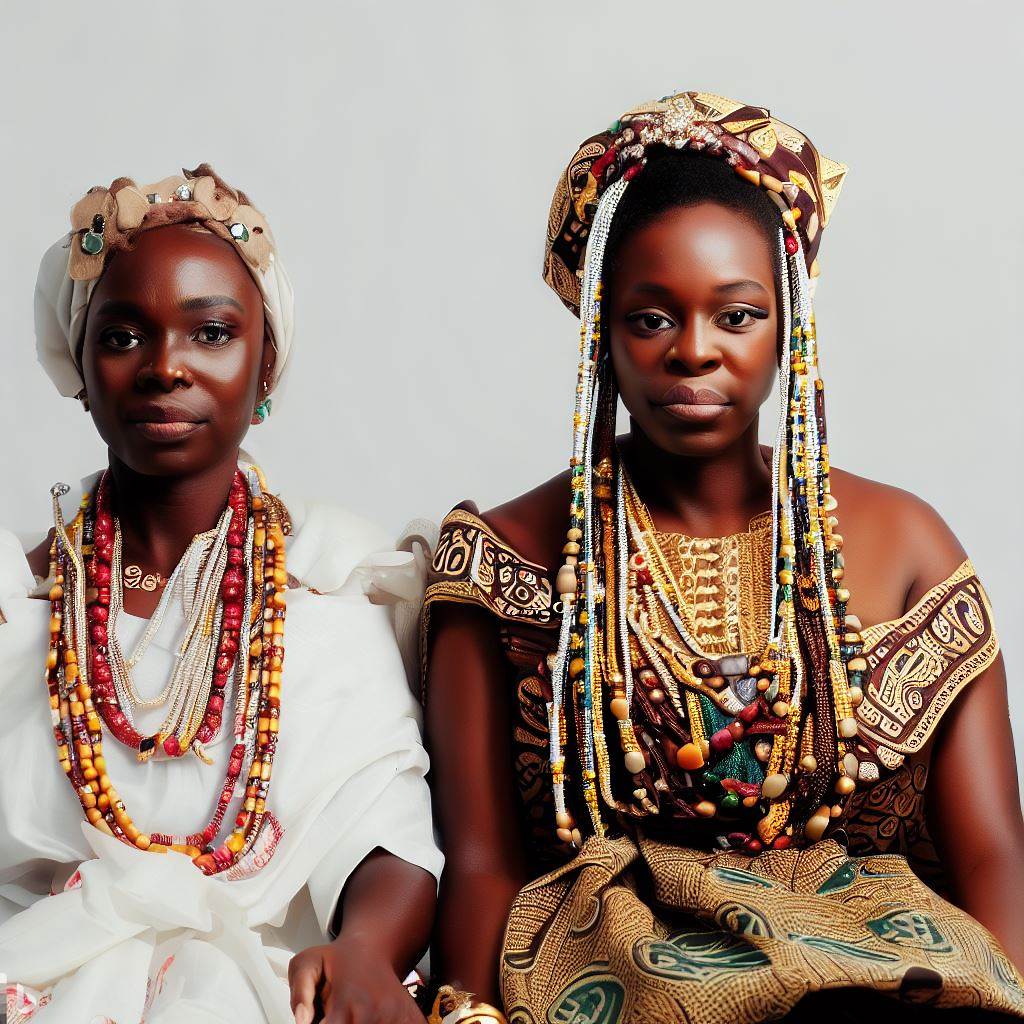Introduction
A. Women in Veterinary Profession: A Nigerian Perspective
In Nigeria, women are making remarkable strides in the veterinary field, challenging traditional norms.
B. Purpose of the Blog Post
This post delves into the evolving role of Nigerian women in veterinary medicine, highlighting their achievements and challenges.
C. Nigerian Perspective Overview
- Changing Landscape: Nigerian society sees a shift as more women choose veterinary careers, breaking stereotypes.
- Educational Empowerment: Increasing access to education empowers women to pursue veterinary studies with passion.
- Professional Challenges: Gender bias and work-family balance hurdles persist, slowing women’s career progression.
- Success Stories: Despite challenges, Nigerian women veterinarians excel as clinicians, researchers, and educators.
- Inspiration for Future: The journey of these women inspires the next generation to dream big and overcome obstacles.
Through this blog, we’ll explore how Nigerian women are shaping the veterinary profession, fostering inclusivity and progress.
Historical Context of Women in Veterinary Profession
A. Historical Barriers to Women in Veterinary Careers Globally
- Lack of educational opportunities for women hindered their entry into the veterinary profession.
- Gender stereotypes and societal expectations limited women’s career choices, including veterinary medicine.
- Discrimination and sexism within the veterinary field created additional barriers for women.
- Limited support networks and mentorship for aspiring female veterinarians impeded their progress.
- Professional organizations and institutions often overlooked women, affecting their professional growth.
B. Unique Challenges Faced by Nigerian Women in the Veterinary Profession
- Traditional gender roles and cultural norms discouraged Nigerian women from pursuing careers in male-dominated fields.
- Limited access to quality education and veterinary training hindered their entry into the profession.
- Socioeconomic factors, such as financial constraints, restricted Nigerian women from pursuing veterinary education.
- Lack of awareness and encouragement about veterinary careers for girls contributed to the gender disparity.
C. Progress Made Towards Gender Equality in the Veterinary Field
- Increased advocacy and awareness campaigns have highlighted the importance of gender diversity in veterinary medicine.
- Educational reforms and initiatives have provided more opportunities for women to pursue veterinary education.
- Women-focused mentorship programs and support networks have emerged, promoting career development.
- Collaborative efforts by government, NGOs, and veterinary institutions have aimed to bridge the gender gap.
- Policy changes and affirmative action have been implemented to encourage the representation of women in the veterinary field.
In recent years, significant progress has been made worldwide, including Nigeria, to address the historical barriers faced by women in the veterinary profession.
While the journey towards gender equality is ongoing, the concerted efforts of various stakeholders have brought about positive change.
It is crucial to continue promoting inclusivity, equal opportunities, and recognition of the contributions of women in the veterinary field.
By doing so, we can ensure a more diverse and thriving profession that benefits both animals and society.
Read: Exploring the Ethics of Veterinary Medicine in Nigeria
Current Status of Women in Veterinary Profession in Nigeria
A. Statistics on the Representation of Women in the Nigerian Veterinary Workforce
In Nigeria, women make up only a small percentage of the veterinary workforce. According to recent statistics, women account for only 30% of veterinarians in the country.
B. Factors Contributing to the Underrepresentation of Women in the Profession
Several factors contribute to the underrepresentation of women in the veterinary profession in Nigeria. One factor is societal norms and expectations that limit women’s career choices.
Additionally, the demanding nature of veterinary work, which often involves long hours and physical strength, can deter some women from pursuing careers in the field.
Furthermore, the lack of female role models and mentors within the profession can also discourage women from entering and persisting in veterinary careers.
C. Successful Nigerian Women Veterinarians and Their Contributions
Despite the challenges, there are many successful Nigerian women veterinarians who have made significant contributions to the field.
Dr. Adaora Iwuala is one such woman. She established a veterinary clinic that focuses on animal welfare and outreach programs to educate the local community about responsible pet ownership.
Dr. Adebisi Adeola is another inspiring figure. She specializes in veterinary pathology and has conducted groundbreaking research on infectious diseases in animals, contributing to the development of effective treatment methods.
Dr. Ngozi Okafor is known for her work in zoonotic disease control. She has played a vital role in raising awareness about the risks of zoonoses and implementing prevention measures to protect both human and animal health.
These women veterinarians have not only excelled in their respective fields but have also served as role models for aspiring female veterinarians in Nigeria.
Read: Certifications for Marriage and Family Therapists in Nigeria
See Related Content: Role of Dentists in Nigeria’s Healthcare System
Challenges Faced by Women in Veterinary Profession in Nigeria
A. Societal and Cultural Stereotypes Affecting Women’s Career Choices in Nigeria
- Traditional gender roles in Nigerian society often limit women to domestic responsibilities.
- Society expects women to prioritize marriage and motherhood over career aspirations.
- Cultural beliefs that women are emotionally fragile and incapable of handling physically demanding jobs like veterinary medicine.
B. Impact of Gender Bias in Educational Institutions and Workplaces
- Limited access to quality education due to gender-based discrimination prevents women from pursuing veterinary careers.
- Male-dominated educational institutions and workplaces perpetuate a hostile environment for women.
- Biased treatment in terms of promotions, salary disparities, and opportunities for professional development.
Read: The Path to Becoming a Surgeon in Nigeria
C. Work-Family Balance Dilemma Faced by Women Veterinarians in Nigeria
- The demanding nature of veterinary work often clashes with women’s familial responsibilities.
- Social expectations place the burden of childcare and household chores primarily on women.
- Lack of supportive policies and flexible work arrangements hinder women from achieving a balance between work and family.
Women in Nigeria’s veterinary profession encounter hurdles: societal stereotypes, biased institutions, and work-family conflict.
Solutions involve:
- Awareness: Promote gender equality in vet roles.
- Inclusive Policies: Institutes and workplaces must ensure equal opportunities and inclusivity.
- Supportive Environment: Flexibility and family-friendly policies can ease work-family tensions.
- Challenging Norms: Societal changes must eliminate career-limiting stereotypes and embrace new gender roles.
In short, Nigerian women vets confront societal norms, biased institutions, and work-life struggles. Combatting these demands collective action to empower women in veterinary fields.
Read: Challenges & Rewards of Being a Family Therapist in Nigeria

Initiatives and Opportunities for Nigerian Women in Veterinary Profession
A. Governmental and Non-Governmental Programs Promoting Gender Diversity
- The Nigerian Veterinary Medical Association (NVMA) collaborates with the government to promote gender diversity.
- The NVMA organizes workshops and conferences to address the challenges faced by women in the profession.
- The Association for Women Veterinarians (AWV) in Nigeria encourages and supports female veterinarians through mentorship programs.
- Non-profit organizations like Women in Veterinary Medicine (WIVM) provide resources and networking opportunities for women in the field.
- The Nigerian government initiates policies that promote gender equality and inclusion in the veterinary profession.
B. Scholarships, Mentorship, and Networking Opportunities
- The NVMA offers scholarships specifically for female veterinary students to encourage their participation in the profession.
- Organizations like WIVM provide mentorship programs where experienced women veterinarians guide and support aspiring professionals.
- Veterinary schools in Nigeria collaborate with industry partners to offer internships and externships exclusively for women.
- Networking events, such as conferences and symposiums, provide platforms for Nigerian women veterinarians to connect and share experiences.
- Professional associations and organizations organize webinars and online forums for women veterinarians to enhance their skills and knowledge.
C. Importance of Role Models and Support Systems
In general, various initiatives and opportunities are available for Nigerian women in the veterinary profession. Governmental and non-governmental programs promote gender diversity and provide necessary support.
Scholarships, mentorship, and networking opportunities are offered to encourage and empower women veterinarians.
Role models and support systems play a vital role in shaping the future of Nigerian women in this field. With these resources in place, Nigerian women veterinarians can overcome challenges and thrive in their careers.
Read: Salary Expectations for Marriage & Family Therapists in Nigeria
Conclusion
- Successful female vets inspire and motivate aspirants.
- Mentorship aids in navigating challenges.
- Support systems encourage and empower.
- Role models and support counter biases.
- Supportive communities foster excellence.
In this blog, we addressed Nigerian women vets’ challenges, stressing gender diversity’s vital role in growth.
Actions needed:
- Break barriers, empower now.
- Gender diversity matters, demands action.
- Highlighted challenges show inclusivity’s urgency.
- Women’s perspective enriches vet field.
- Equal opportunities and support enhance balance.
Empower Nigerian women vets:
- Tackle norms and biases.
- Foster mentorship and networks.
- Advocate gender equality policies.
- Unite for diverse, thriving future.
Together, we create a brighter, inclusive veterinary landscape where all contribute and thrive.




